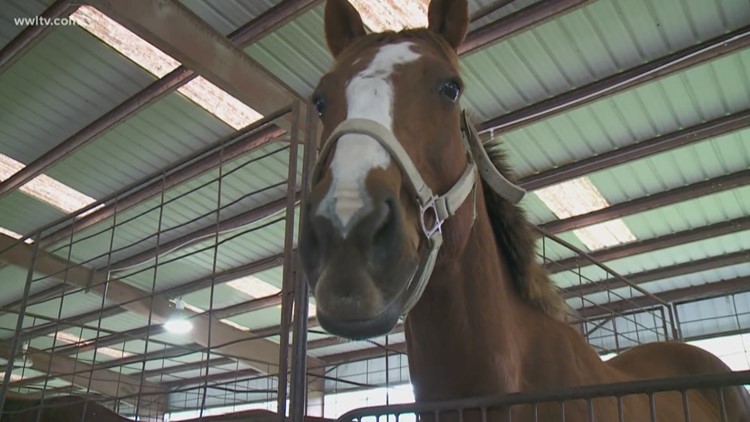NEW ORLEANS — Louisiana is offering free microchips to people who want permanent identification for their saddles.
“It's exciting,” said Cliff Williamson, director of regulatory affairs for the American Horse Council, a national equine industry group. Saddle thefts have been a problem for decades, he said, but he hasn't heard of any similar state programs.
Saddles can cost anywhere from less than $200 to tens of thousands of dollars, Williamson said. “A microchip only costs $3. So if it can save law enforcement three minutes it's well worth the investment,” Williamson said Wednesday.
Saddles are popular targets for agricultural theft because they don’t have identifiable marks or serial numbers, the Louisiana Department of Agriculture and Forestry said in a news release Tuesday.
“Microchipping saddles is a unique identification tool which is invaluable if your saddle is lost or stolen,” said department Commissioner Mike Strain. “It is done in such a way that only you know it is there."
Livestock Brand Commission officers can scan a microchipped saddle to confirm ownership, he said. "Otherwise, we have no way of proving the theft.”
Williamson said, “Louisiana has been the forefront” in microchipping horses. Louisiana was the first state and may be the only state to require microchipping when horses are first tested for an incurable disease called equine infectious anemia, he said. Horses that carry the disease must be quarantined or euthanized, according to the federal Animal and Plant Health Inspection Service.
A U.S. nonprofit organization called Stolen Horse International suggests microchipping saddles as well as horses and other animals, and at least one microchip ID business in England advertises kits for saddles on its website. But Williamson said the practice isn't widespread in the U.S.
Williamson said stolen saddles often are sold through social media, flea markets or used tack stores. “I don’t imagine very many tack stores have the equipment to scan a saddle, much less the inclination to do so,” Williamson said.
Agriculture department spokesperson Megan Moore said that, unlike microchips for livestock and pets, syringes aren't used to insert the chips. “We drill a small hole into the saddle and implant a microchip the size of a grain of rice. The hole is then sealed with a sealant,” Moore wrote in an email.
The commission’s first microchipping session will take place May 19 at Red River Farm Supply in Effie, from 1 to 4 p.m. The commission said more dates and locations will be announced in the near future.
The programs are joint ventures of the Livestock Brand Commission, parish sheriff’s offices, other law enforcement agencies, parish cattlemen’s associations and riding clubs.



